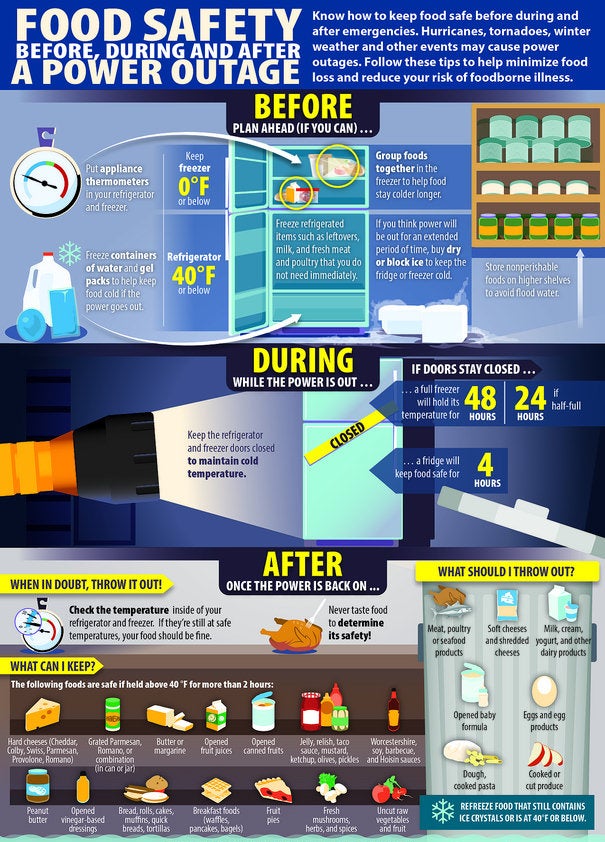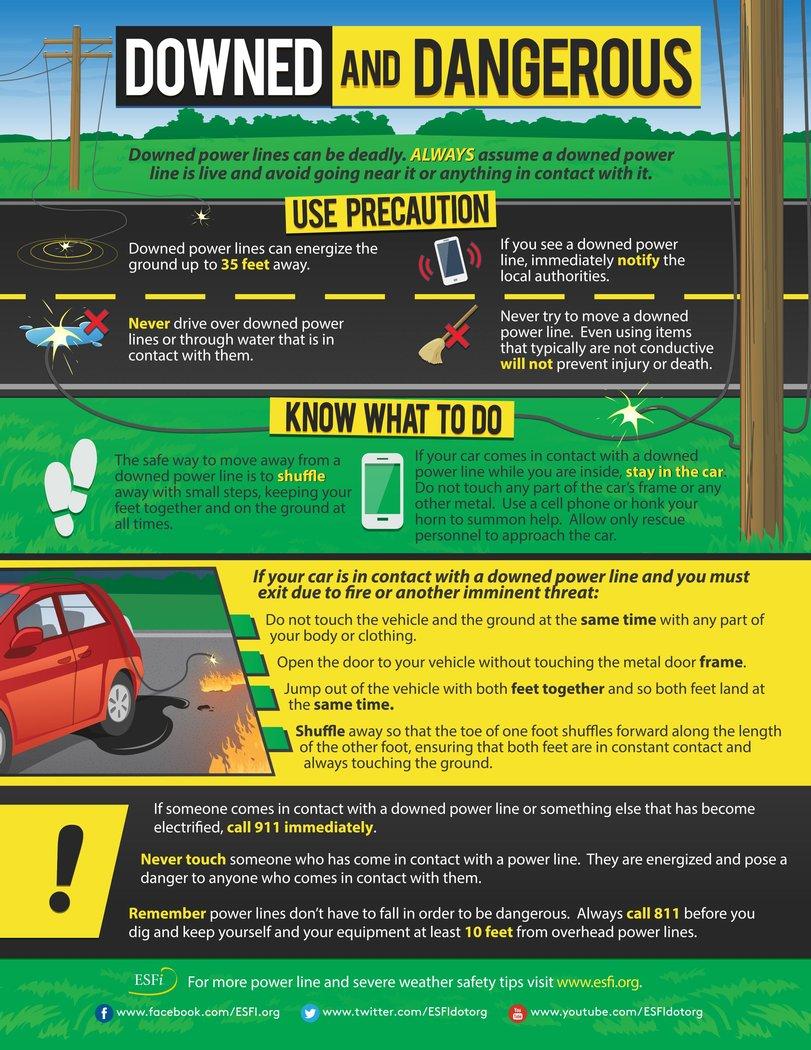Report an Outage
Report an outage online using SmartHub or call us at 1-800-450-2191
Outage Map
We always appreciate your patience while crews work diligently and safely
during power outages. Once we know about your outage, crews will be
dispatched immediately so your power can be restored as quickly as possible.
during power outages. Once we know about your outage, crews will be
dispatched immediately so your power can be restored as quickly as possible.
Tips to Prepare for an Outage
- Check your home's breaker panel (and any outdoor disconnects located below the meter) to make sure the outage is not due to a tripped breaker.
- Call your neighbors to see if their power is off. This will help you determine if the problem exists within your home, or on our lines.
- If you determine the problem is outside your home, call Mille Lacs Energy at 1-800-450-2191 or 927-2191. Do not assume that others have reported the outage.
- Keep refrigerator and freezer doors closed. Food should keep for up to 48 hours in a freezer, if the door remains closed. If the outage persists, cover your refrigerator or freezer with a blanket, make arrangements to store food at another location, or purchase dry ice.
- Turn off all electrical appliances that were on when the power went off, especially heat pumps, air conditioners or electric heat. But leave a light on so you will know when power is restored.
- Make sure one of the phones in your home is not a cordless phone as these use electricity and therefore do not work during power outages
- Use a battery powered flashlight, not candles.
- Keep a battery operated radio handy to listen for outage information and updates
- Turn off electrical equipment you were using before the power went out
- Keep refrigerator and freezer doors closed. Food should keep for up to 48 hours in a freezer, if the door remains closed. If the outage persists, cover your refrigerator or freezer with a blanket, make arrangements to store food at another location, or purchase dry ice.
- Essential supplies: flashlight, batteries, radio, extra supply of water, food.
- Turn off and unplug your computer if you were using it. Buy a surge protector to protect the machine when power comes back on.
- Stay inside – dress in warm, layered clothing, and cover up with extra blankets.
- Close off unneeded rooms.
- When using an alternative heat source, follow operating instructions, use fire safeguards and be sure to properly ventilate (keep a multipurpose, dry-chemical fire extinguisher nearby and know how to use it).
- Stuff towels or rags underneath doors to keep in the heat.
- Cover windows at night.
- Maintain a regular diet. Food provides the body with energy for creating its own energy.
- Drink plenty of fluids to stay hydrated.
- Infants or persons over 65 are more susceptible to the cold, check on elderly or disabled friends or neighbors. You may want to find an alternative location with friends or relatives if you cannot keep your home warm.
- Be cautious when using alternative heating, lighting and cooking sources that may increase the risk of a fire or carbon monoxide poisoning.
Use Portable Electric Generators Safely
Portable electric generators can offer many benefits when a long-term electrical outage occurs due to a storm. However, if generators are not used properly, things could turn deadly.
After Hurricane Katrina, for example, many people relied on generators. But the misuse of them caused five deaths, according to the Centers for Disease Control and Prevention (CDC). The CDC also reported 51 cases of carbon monoxide poisoning.
Follow these tips to prevent misuse of portable electrical generators:
- Be sure to follow manufacturers’ directions for installation and operation.
- To prevent electric shock, make sure your generator is properly grounded. The operation manual should provide correct grounding procedures.
- Operate electric generators or other fuel-powered machines outside where deadly carbon monoxide fumes cannot enter the home.
- Use the generator only in a well-ventilated and dry area located away from air intakes to the house. Do not use a generator in an attached garage.
- Do not overload the generator by operating more appliances and equipment than the generator can handle. The operating instructions should have an output rating for the generator.
- Individual appliances should be plugged directly into the receptacle outlet of the generator using appropriately sized extension cords to carry the electric load. Make sure the cords are rated for outdoor use, have a grounded, three-pronged plug, and are in good condition.
- Do not run extension cords under rugs.
- Never connect generators directly to your home’s wiring. The reverse flow of electricity can electrocute an unsuspecting utility worker.
- Never plug a generator into a household outlet.
- Do not refuel a generator while it is running.
- Only store fuel outside of living areas and away from heat sources like water heater pilot lights.
- Turn off all equipment powered by the generator before shutting it down.
- Keep children and pets away from generators.
Sources: Consumer Product Safety Commission, Arkansas Cooperative Extension Service
Safety Around Downed Power Lines
Safety First: Stay away from downed power lines
If you come across power lines that are down for any reason, stay away. Do not touch or try to move downed lines with your hands or any other object. Downed power lines can carry an electric current strong enough to cause serious injury or even death.
Here are some tips to keep in mind with downed power lines:
- Consider all wires energized and dangerous. Even lines that are de-energized could become energized at any time.
- Do not attempt to remove trees or debris of any kind from power lines. Electricity needs a conductor (any material that allows an electric current to pass through it) and can therefore travel through tree limbs, guardrails, vehicles, your body, etc.
- If a broken power line falls on your vehicle, stay inside the vehicle. Use your cell phone to call for help. The vehicle can become energized so you are safer staying inside until someone, like a lineworker, can professionally help.
- If you must get out of the vehicle due to fire or other life-threatening hazards, jump clear of the vehicle so you do not touch any part of it and the ground at the same time. Jump as far as possible away from the vehicle with both feet landing on the ground at the same time. Once you clear the vehicle, shuffle away with both feet touching the ground at the same time.
- If someone makes contact with a downed power line, don’t try to rescue them because you risk becoming a victim yourself. Call 911 for help.
If you see a downed power line, call us immediately at 800-450-2191 so one of our line crews can safely repair the line.


